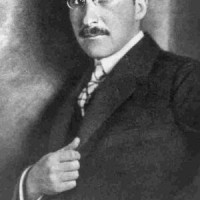
There can be a literary virtue in seclusion. Whether a long narrative is constrained to a reduced number of characters or settings (what I like to call the “person in a room talking” novel) or making use of themes related to isolation, memorable results are capable in either instance. Loneliness and solitude are essential elements to the human condition; they can be as liberating as the feeling of walking alone through a city that’s not your own, half-buzzed on coffee, or they can be as depressing as finding yourself cut off from those closest to you, whether geographically or emotionally.
As the title of her novel might suggest, Fiona Maazel’s Woke Up Lonely addresses concerns of isolation in all of its forms head-on. At the center of the novel are an estranged couple: one has started a self-help movement that, over time, has evolved into something closer to a cult; the other, an expert in intelligence and espionage, finds herself surveilling him. Maazel’s canvas is wider than that, though: there are numerous subplots that echo the central theme of estrangement, and neatly evoke American politics in the early 21st century. Which doesn’t even cover the way North Korea factors in, or the bravura use of an unlikely bit of urban planning. Nor, I think, does it evoke the fact that this is an incredibly funny novel in places — a combination that makes for one of the best books I’ve read this year.
I’ll have a lot more to say about Woke Up Lonely in the coming weeks (and months). The same is true of Matt Bell’s In the House Upon the Dirt between the Lake and the Woods — also one of the year’s best novels, and seemingly designed to bewilder anyone seeking an easy way to classify it. Bell’s narrative, about a married couple living in isolation by the shores of a lake, begins as a tale of marital discord and quickly becomes something stranger — and also more familiar. His novel is steeped in creation myths, but is also brutally visceral in places. (Angela Carter and Cormac McCarthy would work well as points of reference, I’d say.) It’s not a book I’d like to say too much about quite yet: so much of the thrill of it comes from the ways in which Bell keeps the narrative evolving, shifting groundrules and revealing more about his setting and characters. Disorienting and evocative, this is a fantastic reading experience.
From the surreal to the naturalistic: Stefan Zweig’s Chess Story, set on an ocean liner and centering around a chess match between a lauded player and a man reeling from his imprisonment under Nazism. It’s a short but powerful book, full of damaged characters, shifting power dynamics, and different varieties of obsession. That it’s set in the middle of the ocean is equally evocative: in this temporary setting, the horrors left behind can be temporarily avoided, but they’ve hardly gone away, and hover over the proceedings ominously.
In Lauren Elkin’s essay in The End of Oulipo?, she alluded to a book called Singular Pleasures by Harry Mathews. After hearing him read last week, I picked up a copy and quickly dug in. This book consists of sixty-odd short scenes of masturbation — which, stay with me here, don’t come off as lascivious or explicit, but rather contain the full spectrum of emotions capable of being evoked by literature. Certain scenes are sad; others, nostalgic. Some made me laugh out loud, while others left me far more pensive. Did I anticipate this reaction when first reading the book’s description? No — all the more impressive, then, for its ability to defy expectations.
Follow Vol. 1 Brooklyn on Twitter, Facebook, Google +, our Tumblr, and sign up for our mailing list.

